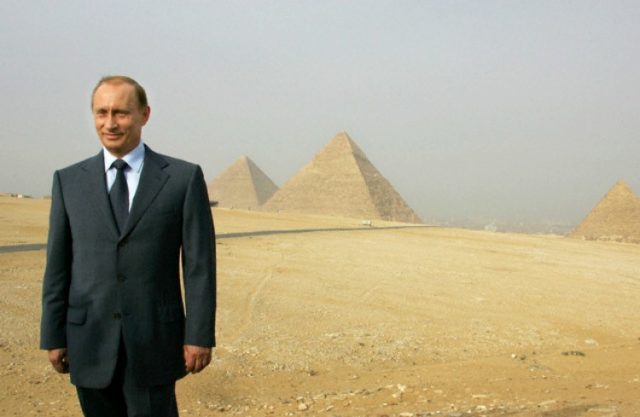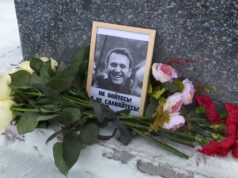The Russian government published details of a reciprocal agreement on Thursday that would allow Moscow to use Egyptian air bases and airspace. The draft accord enables the Kremlin to expand its military presence in Egypt, a traditional U.S. ally, and the wider region.
The proposed five-year deal comes after Russian Defense Minister Sergei Shoigu visited Cairo on Wednesday, where he met with President Sisi to discuss regional security challenge and weapons sales. Shoigu noted that the Russians were “…pleased to note stable positive dynamics in the military-technical sphere” with Cairo.
Over the past five years, Cairo has brought increasing quantities of military kit from Moscow in deals costing billions of dollars. Sales have included advanced S-300 air defense systems, attack helicopters, and late fourth-generation MiG-35 fighter jets. A 2014 report by the Washington Institute indicates that Egyptian military officials have said that Russia’s “absence of conditions on weapons sales makes it a more reliable partner than Washington, which has withheld weapons pending political reform.”
Since the 1978 Camp David Accords, the U.S. has provided $70 billion to Cairo. Even though relations between President Obama and President Sisi cooled after the 2013 coup, the Trump administration promised to “overcome any obstacles” to the U.S. Egyptian relationship and resume delivery of F-16 fighter planes, M1A1 Abrams tank kits, and Harpoon missiles. However, this year the White House has withheld $291 million in aid over concerns for Cairo’s human rights record and ties to North Korea.
Thursday’s announcement portends a slow but steady shift in Egypt’s exit from Washington’s sphere of influence. Over nearly 45 years, since the failure of Arab armies in the Yom Kippur war, Cairo has looked toward the U.S. to shape the region and Egypt’s military capability. Moscow’s growing military presence in the Middle East poses a challenge to America’s ability to exercise its political dominance. Putin’s 2015 intervention in Syria has not only secured Russia’s military facilities on the Mediterranean coast but also has given Moscow the ability to shape the political outcome of the civil war more than any other outside power.






